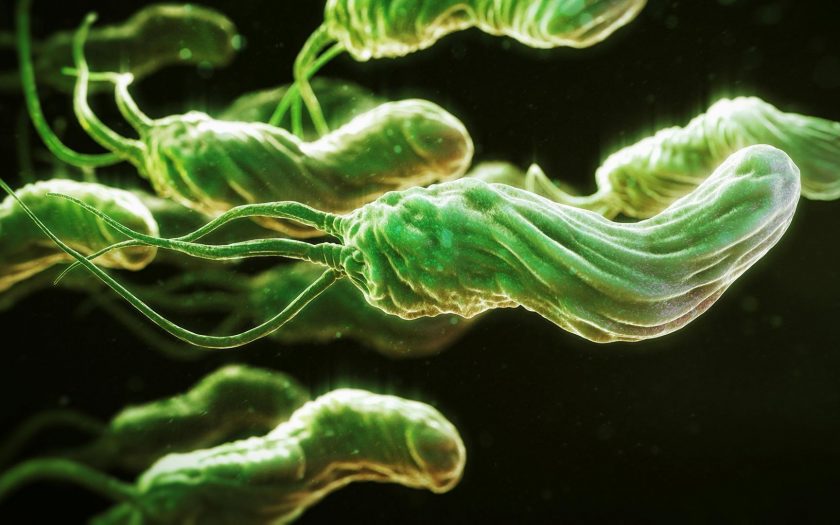When the bacterium Helicobacter Pylori enters the body, it multiplies rapidly under the influence of certain foods. These foods weaken the stomach’s defenses against harmful bacteria and promote the development of ulcers and cancer.
Healthy eating is the key to protecting the body from disease. It is best to reduce the intake of these foods to a minimum to maintain good health.
-
Simple carbohydrates.
Bacteria, like other living organisms, feed to survive. As a rule, they choose simple carbohydrates. Try to eat less baked goods, sugary foods and other unhealthy carbohydrates. In the body, they provoke the spread of harmful bacteria, including Helicobacter pylori. Simple carbohydrates have no nutritional value and fiber, which negatively affects your well-being.
-
Salt.
Excessive salt intake increases the risk of stomach cancer. Inside our stomach there is protection against the destruction of the walls – mucus. Salt violates the “tightness” of mucus and allows the bacteria helicobacter pylori to destroy the stomach wall. Therefore, it can lead to the development of stomach ulcers or cancer.
You can not completely give up salt, especially if you do sports. Try to reduce the amount of salt in your diet to prevent the growth of bacteria in your stomach.
-
Marinated products.
Studies show that fermented foods are good for your gut. They contain probiotics, which increase the number of beneficial bacteria. These same probiotics help fight helicobacter pylori bacteria. These facts do not apply to pickled products produced for sale. Pickled cucumbers, tomatoes and other pickles sold in stores contain a lot of salt and vinegar. Such foods destroy the protection of the stomach from bacteria.
-
Coffee.
If you drink it before a meal, it harms the digestive process and causes an imbalance in the intestines. The released hydrochloric acid has nothing to digest, because there is no food inside to digest. As a result, the acid destroys the stomach wall, which becomes a favorable environment for the spread of helicobacter pylori. Drink coffee about an hour after eating. At this time, the digestive process will be active, and hydrochloric acid will be harmless.
-
Alcoholic beverages.
Alcohol consumption can lead to gastrointestinal ulcers. Its effect is similar to coffee. However, if coffee can sometimes be drunk without harm, alcohol always has a negative effect on the stomach. Under such conditions, harmful bacteria multiply, which leads to adverse consequences.
-
Gluten.
Any food that contains gluten can be harmful to the health of the stomach and intestines. Gluten slows down the absorption of nutrients and can cause inflammation. Excessive consumption of gluten creates a favorable environment for the development of helicobacter pylori.
For healthy stomachs, try to reduce the amount of these foods in your diet and carefully read the composition and nutritional value of the foods you buy in stores.
If the disease is already present, do not delay treatment (for example, drugs such as Clarbact or Nexium).

